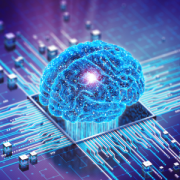Technological evolution and increased AI adoption are driving interest in the challenges AI poses for legal frameworks designed to regulate human behaviors. In the context of intellectual property (IP) law, many tasks done by today’s AI are longstanding AI capabilities, but the technology has improved to the point where they have meaningful commercial value.
Those improved capabilities are increasing concerns about the protectability of AI output, deepfakes, privacy, and the use of copyright-protected content for training AI systems. This Advisor focuses on AI-generated output created without a traditional human author or inventor and examines whether this output is protectable under current laws.
Is AI Merely a Tool Used by Humans?
Nearly seven decades after the term “artificial intelligence” was coined, it lacks a uniform definition — and the need to define AI has now departed the realm of academia. This lack has neither impeded engineers nor businesses from developing and employing AI, but it poses substantial challenges for legislation like EU’s AI Act, aimed at governing AI use and development. The same applies to defining AI-generated output, which is muddled by ambiguous terms like “autonomous” and “tool” commonly used to describe AI abilities and functions.
Here, we use “AI” to refer to an algorithm or machine capable of completing tasks that would otherwise require cognition. We use “AI-generated” works and inventions to refer to output made without a traditional human author or inventor. AI systems are developed and directed by humans but can, to varying degrees, automate tasks and make creative or technical decisions.
Some argue that AI systems are just tools used by people to generate works and inventions, not different in kind from a pencil or a microscope. In this view, AI output is simply a natural extension of human creativity. Others argue that, in some instances, AI is stepping into the shoes of natural persons and automating tasks that would traditionally make a person an author or inventor, including in cases where no natural person is acting as an author or inventor. If this view is correct, it may not be possible to obtain copyright and patent protection for AI-generated output in jurisdictions that require the involvement of a human author or inventor.
Policymakers have become acutely aware of the disruptive nature of AI and are actively debating how best to regulate it. In the US, the Senate Subcommittee on Intellectual Property held a hearing in June 2023 on AI and patents as part of a series on AI and IP. The US Patent and Trademark Office issued a “Request for Comments” on AI and patent inventorship in February 2023.
The EU is creating a new legal framework specifically targeted to AI: the AI Act. The UK Intellectual Property Office (UKIPO) conducted two consultations on IP and AI as part of its National AI Strategy. The World Intellectual Property Organization (WIPO), the UN agency primarily responsible for IP matters, is conducting a series of meetings on IP and AI as part of its “WIPO Conversations on IP and Frontier Technologies.” WIPO describes the conversations as “an open, inclusive, multi-stakeholder forum designed to provide stakeholders with a leading, global setting to discuss the impact of frontier technologies on all IP rights and to bridge the existing information gap in this fast-moving and complex field.”
Authorship & Inventorship in IP
One of the primary challenges in determining whether AI-generated output is eligible for protection is that many existing legal systems have, to some extent, framed authorship and inventorship in terms of human activity. Sometimes this was the result of historical assumptions that only a person could be an author or inventor. Some commentators say this is still a desirable position on the basis that IP laws should exist to incent certain human behaviors or protect human moral rights. Others argue that IP laws exist primarily to benefit the public by encouraging the creation and dissemination of IP and thus should be agnostic as to the manner in which protectable output is generated.
Establishing IP rights for AI-generated output may also raise new questions about ownership. Whereas authors and inventors are sometimes the first-instance owners of their output, AI systems, lacking in legal personality, cannot own IP. It thus becomes necessary to determine who should hold the corresponding rights — including in cases where multiple parties may have a claim to ownership, such as those programming or training AI systems, using AI systems, or having ownership rights in AI systems. Adding further complexity, IP law is governed by a complex web of national and international rules.
[For more from the authors on this topic, see: “IP Law in the Era of Generative AI.”




